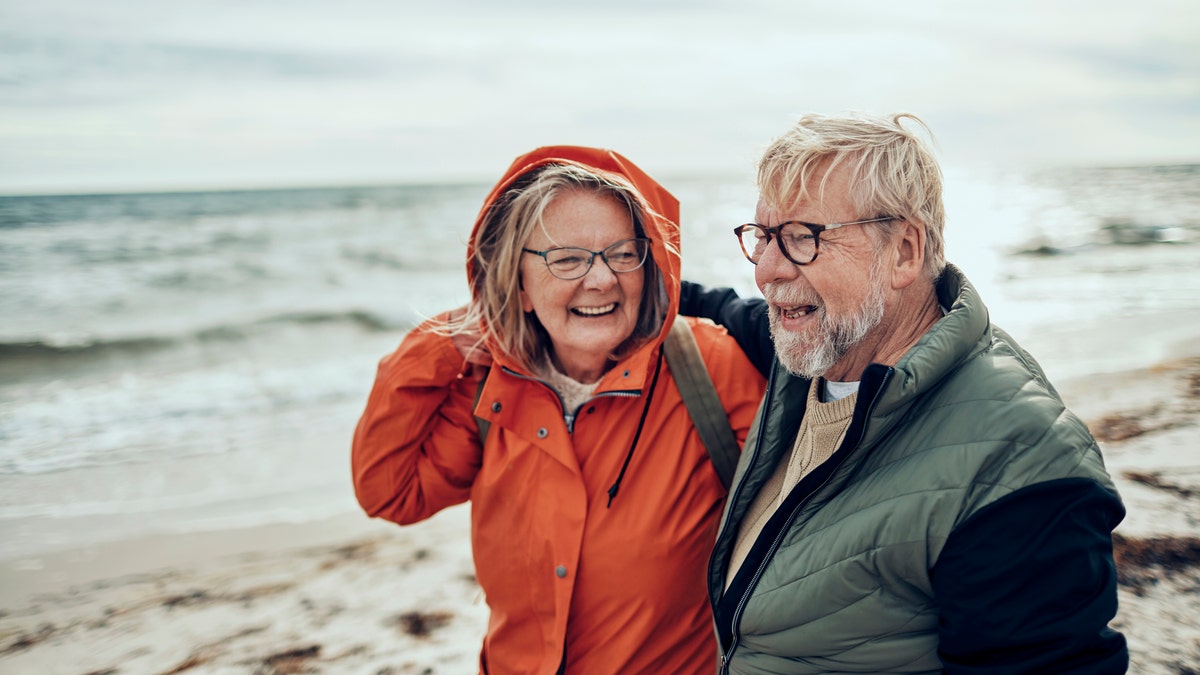While the “official” full retirement age in the U.S. is 67, according to the Social Security Administration, the average American stops working at 62 years old.
But not everyone retires — an AARP survey last year found that a quarter of people over 50 expect to never leave their jobs.
That might not be all bad, according to some experts who believe retirement could actually be harmful to the health.
SECRETS OF LONGEVITY FROM THE WORLD’S ‘BLUE ZONES’
Dan Buettner, a Florida-based author, explorer and longevity expert, has spent years researching the world’s “blue zones,” where a greater number of people live to be 100. In those areas, he says, the notion of retirement doesn’t really exist.
“Instead of this artificial punctuation between your useful and productive life and a life of repose, people in blue zones are powered by purpose for their entire lives,” he said in an interview with Fox News Digital.
While retirement has been linked to less stress and more relaxation, Buettner noted that when people retire, their chances of dying spike.
COMMON SUPPLEMENT COULD HELP YOU LIVE LONGER, RESEARCH SUGGESTS
“We don’t know if this is because they become less active, or they lose their sense of purpose, or they lose their social work, or they go home to have troublesome situations,” he said.
“But the message is clear — the longer you can stay active, physically and mentally, and contribute the talent you have to offer the world, the more you’ll be rewarded with a longer life.”

Dr. Kyle Elliott, a tech career coach and mental health expert in California, said that one reason for the emphasis on retirement is that many people don’t enjoy their current jobs.
“Professionals often look toward retirement as an escape from their careers — but rather than focusing on retirement, consider trying to find joy in your current work,” he told Fox News Digital.
“The longer you can stay active, physically and mentally, the more you’ll be rewarded with a longer life.”
“If your current work doesn’t bring you fulfillment, it might be time to explore new opportunities,” he went on. “When people enjoy their work, they’re less likely to be counting down the days until retirement, and their good feelings positively impact their day-to-day lives.”
Benefits of not retiring
People who retire are more prone to loneliness, have lower energy levels and often “lose their sense of meaning,” according to Buettner.
“Unless you truly hate your job, the link between longevity and not retiring is very important,” he said.

“Having a meaningful job can provide the impetus for us to get out of bed in the morning, get out of the easy chair, keep our brains engaged and keep our bodies moving — these are the things that really fuel longevity.”
Elliott echoed the importance of engagement and activity as people age.
“One of the worst things you can do for your health is disengage from those around you,” he said. “Work provides a structured opportunity to continue to socialize and have purpose in life.”
WOMAN, AGE 107, HAS A FEW BIG SECRETS OF LIVING A LONG, HAPPY LIFE
Having a consistent routine can also lead to health benefits, Buettner said — chiefly, going to bed and waking up at the same time each day, which is more likely to happen with a work schedule.
“Sleep is the most important thing you can do for your overall health,” Buettner said.

Elliott agreed that adhering to routines can significantly benefit mental health and longevity.
“You want to focus on engaging in those activities that boost your energy and well-being, while simultaneously removing those that drain your energy and negatively impact your self-care,” he advised. “As you near retirement age, this might look like switching careers or adjusting your social circle.”
Having a sense of purpose is one of the biggest benefits of opting not to retire, according to both experts.
WWII VETERAN TURNS 100, REVEALS THE SECRETS OF A LONG, HEALTHY LIFE
“It’s pretty difficult to be happy without purpose — it’s a lot easier when you’re clear on your purpose and passion,” Elliott said.
“When you’re clear on what drives you, you can use this clarity to motivate you during great times and provide resilience during difficult ones.”

Buettner cited the famous “Nun Study,” a longitudinal study of aging and dementia that included 678 nuns in Mankato, Minnesota, many of whom lived past 100 years old.
“Those who lived the longest articulated their sense of purpose, the reason they woke up early,” Buettner said.
People who have a strong purpose are more likely to stay physically fit, eat nutritious foods, form healthy social relationships and take their medications, according to the expert.
“One very good study showed that people who maintain their sense of purpose live about eight years longer than people who are rudderless,” Buettner added.

There are also financial benefits to keeping a job.
“If you keep working, you can often take advantage of an employer health plan, you can delay taking Social Security benefits, and you’ll get a bigger paycheck in the future,” said Buettner. “Not only that, you’ll have more money to enjoy your vacations.”
Different flavors of retirement
Retirement doesn’t have to look the same for everyone and doesn’t have to be “all or nothing,” according to Buettner.
“If you’re in a job that you hate, you probably shouldn’t keep doing that to the grave — but finding a job that lines up with your passions and your strengths might be the very best life change you can make at any age,” he said.
CLICK HERE TO SIGN UP FOR OUR HEALTH NEWSLETTER
“If you’re doing something you love every day, you’re engaging your purpose and innate desire to contribute, and are more likely to be happy.”
Statistically, according to Buettner, the happiest people in the world work about 30 to 35 hours a week.
“If you’re doing something you love every day, you’re engaging your purpose and innate desire to contribute.”
“That leaves plenty of time to be physically active, nurture your family, spend time with friends and give back meaningfully,” he said. “This is how we configure a life that will not only help you live longer, but also better.”
Elliott agreed, noting that while it’s not necessarily a bad thing to look forward to retirement, it can be helpful — and healthy — to find work that brings you fulfillment and allows you to remain mentally, physically and socially active as you age.
For more Health articles, visit www.foxnews.com/health
“Retirement doesn’t have to mean completely leaving the workforce — instead, it might look like engaging in a new line of work, pursuing volunteer efforts, taking up hobbies or even starting a business,” he said.
“This transition can be the perfect opportunity to explore new interests and continue to live an intentional life.”
Read the full article here













